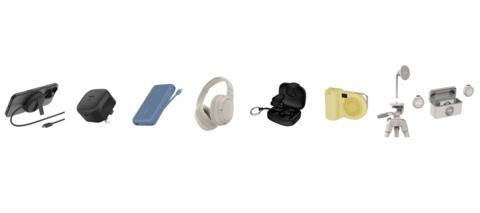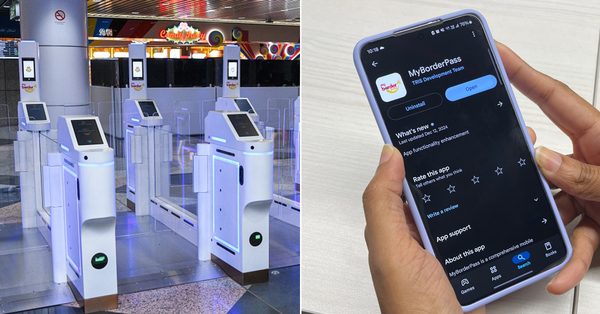phwin9
2025-01-08
 phwin9
DUP minister rejected suggestion licensing laws could be relaxed for jubilee
phwin9
DUP minister rejected suggestion licensing laws could be relaxed for jubilee
Children Car Seat Market Generated Opportunities, Future Scope 2024-2031Morrissey throws 67-yard TD pass to Calwise Jr. to lift Eastern Kentucky over North Alabama 21-15Terrorists exploit AI for propaganda and operations, exposing critical gaps in tech safeguards
An interesting panel discussion on the topic ‘Books in the Digital Era’ was held on Saturday during the 37th Hyderabad Book Fair. The discussion offered a nuanced look at the evolution of reading habits in a heavily digital driven world. The hour-long session, chaired by Prof. Vijay Kumar, saw readers and book lovers sharing personal stories, insights and some hard truths about how we consume stories today. Aparna Thakur, who has been running a children’s library for eight years, spoke about the challenges she faced during the pandemic. “I started the library to encourage children to come and read books. When hit by the Covid-19 pandemic, I started an Instagram page, which received an amazing response. After the pandemic, more children began visiting after reading our reviews online,” she said and added that parents and children still prefer physical books over digital ones. However, statistics suggest an undeniable rise of e-books and audiobooks. According to a recent report, global e-book revenues are projected to grow to $15 billion by 2025, with India being one of the fastest-growing markets. Usha Raman, one of the panellists, pointed out that digital reading isn’t merely about convenience but also about creating a new relationship with the text. “This generation is very active on digital platforms. When reading digitally, people can bookmark their favourite parts or share lines they love on social media. It creates a new kind of connection with the text,” she said. At the same time, Aparna Rayaprolu cautioned against the pitfalls of the digital deluge, stating, “Everything is so accessible now, whether it’s e-books, articles or audiobooks. It’s wonderful to have so much at our fingertips, but there’s a catch. Many people download books and then never get around to reading them.” This implies that the actual time spent on reading downloaded books is not as encouraging. However, there is no denying the democratisation of access to literature owing to technology. Writers can also reach audiences they might not have been able to through traditional publishing. Poornima Tammireddy explained how digital platforms proved invaluable when she worked on translating Manto’s writings into Telugu. “I read his essays, reviews, and stories online, which helped me to write with more precision. Of the 40 stories I’ve written, only two made it to print. The ones published digitally received an incredible response,” she shared.BC.GAME CONTINUES ONGOING EFFORTS IN STRENGTHENING ITS GLOBAL COMPLIANCE STRATEGY10 Of The Most Reliable Audi Models Ever Built, Ranked
With her claim that retailers are seeing high returns of Arm PCs, Intel interim CEO Michelle Johnston Holthaus appears to be trying to scare buyers off the rival processor architecture. But enterprise buyers who look before they leap have little to fear. Speaking at Barclay’s annual technology conference late last week, Holthaus said “if you look at the return rate for Arm PCs, you go talk to any retailer, their number one concern is, ‘I get a large percentage of these back because you go to set them up and the things that we just expect [to work], don’t work.’” CIO reached out to Intel and Qualcomm for comment on Monday, but 24 hours after the request was made, had yet to receive a reply from either organization. The same applied to Microsoft, Dell, HP and Lenovo, all of whom offer devices based on Qualcomm’s latest processors, . Analysts were more forthcoming, with Jeremy Roberts, senior research director at Info-Tech Research Group saying, “high return rates for Snapdragon systems allegedly reported by retailers and touted by Intel leadership are neither here nor there for most business users.” The reality, he said, is that “while you get some definite benefits from Arm-powered devices (battery life is a huge selling point), most desktop applications were built for x86 systems and will either need to be refactored or run through an emulator like Microsoft’s Prism. Your average retail buyer doesn’t care about instruction sets or emulation layers until things that they want to do, like play games or use applications, don’t work. Your typical business buyer does care about these things.” Roberts added that he does not have insight into the reality of the higher return rates: “It’s possible that Intel is making a mountain out of a molehill, or that Qualcomm is downplaying a real threat to their business. But for the informed buyer, it shouldn’t matter.” Anshel Sag, principal analyst at Moor Insights & Strategy, added, “the rumors of high rates of return for Qualcomm-based PCs have been a persistent one that came out prematurely. So, when we hear this get brought back up again, it makes me question how valid it is. Especially since I have yet to speak to anyone in the channel or OEMs has been able to validate these claims.” He said sales numbers haven’t been as good as many had probably hoped, “but I also believe a lot of this has to do with Microsoft’s stumbles with features like , which have reduced the value of going with a Qualcomm Copilot+ PC at launch.” Sag said that, for enterprise buyers, “there is still a good amount of enthusiasm about what the platform could be, but it remains unclear if Microsoft, Qualcomm, and the OEMs have quite cleared the bar.” He said he thinks that enterprises are still experimenting with Arm-based PCs, but they also know that, regardless of the chip vendor, the future of PCs will include Arm. “I think its really a maturity problem,” he noted, “especially with Microsoft creating a lot of doubt around Copilot+ with Recall, and the mixed capability across chip vendors.” Sag predicted that the big trend to watch in 2025 will be to see how much the Copilot+ PC outgrows its early growing pains, and how many enterprises have been able to verify that their software runs natively or smoothly in emulation. There will, he said, “be a lot of enterprises looking to replace their early pandemic machines or outdated Windows 10 PCs, and they will want something that has AI capabilities, even if those are primarily for future-proofing reasons. In my conversations with OEMs, there hasn’t necessarily been as much excitement for Arrow Lake-based Intel processors as much as there is for Lunar Lake, due to the limited AI capabilities and Microsoft’s desire to focus on Copilot+ PCs.” “Compatibility is still a factor for Qualcomm here, but every week, there are major updates for Arm-based Windows PCs, and the platform gets better,” Sag added. “There are a lot of factors at play here, but I think most people who are going out and buying a Qualcomm system know what they are getting and want that long battery life with no-compromise performance.” Meanwhile, Roberts said, end user computing decision makers working in a corporate IT department should, “review their requirements and management tools and ensure compatibility before purchasing devices. And they probably wouldn’t do this through the retail channel anyway. “To me, this is an interesting potential story about adoption, but it’s not really relevant to enterprise IT — assuming very basic due diligence is conducted.”
Three highly accomplished teammates were selected as the first-ever Naval Air Warfare Center Weapons Division Laboratory University Collaboration Initiative Fellows for 2025. The NAWCWD recipients of this competitive award, commonly referred to as LUCI, are Dr. Paula Chen of the Physics and Computational Sciences Division for her work titled, “Physics-Informed Machine Learning for Multi-Agent Differential Games”, and Dr. Benjamin Harvey and Dr. K. Randall McClain from the Chemistry Division, for their work titled “Conferring the Magnetic Anisotropy of Lanthanide Single-Molecule Magnets to Coupled Magnetic Nanomaterials.” LUCI, which is sponsored annually by the Basic Research Office within the Office of Under Secretary of Defense for Research and Engineering, is designed to pair up Department of Defense researchers with some of the most prominent academia professors and universities with the overall objective to advance basic research by identifying gaps and emerging technologies 10-20 years in advance. Each year OUSD(R&E) selects approximately a dozen DoD researchers working in the basic research field to collaborate with already-DoD-funded academics. The fellowship provides the researcher $200k per year during a three-year span to pursue their research. The selection process involved program officers from the U.S. Army, Navy, and Air Force, along with senior leadership from the Basic Research Office and technical experts from partnering defense contractors. Out of 59 initial white papers, the selection board narrowed it to 22 proposals. Following an intense interview process, 14 projects were selected, represented by 20 principal and co-principal investigators. Director of the NAWCWD Research Department Dr. Mark Wonnacott commented that NAWCWD has, over the years, had a few outstanding researchers make it to LUCI’s final interview step, however, to his knowledge, this is the first time NAWCWD has had a recipient, let alone three. In fact, the only other warfare center researcher listed as a LUCI Fellow was from the Space and Naval Warfare Systems Command in 2017. Chen is a SMART scholar who has been at NAWCWD for only 16 months after completing her SMART internship with the Physics and Computational Sciences Division under Dr. Katia Estabridis. She is also the recipient of the SMART Scholarship SEED Grant for basic research. “Paula is a very bright superstar, who, without the SMART program, may not have ended up here at NAWCWD,” said Estabridis. “She comes with strong mathematical skillsets which will ultimately improve things for the warfighter.” Both her LUCI and SEED efforts are in collaboration with Brown University, which is where Chen completed her doctorate degree in 2023. For this project, Chen is collaborating with Professor George Karniadakis, PhD. The LUCI project that Chen will be collaborating on focuses on theoretical mathematical algorithms that can be modeled to show varying outcomes. “Differential games are some of the most difficult problems to solve in math,” explained Chen. “The point of this project is to find new ways to solve them.” Chen expressed her excitement to partner on this topic. “This project hits on all the hot topics in academia right now, and it's exciting to have validation from others that my ideas are valuable,” said Chen. Karniadakis is a Vannevar Bush Faculty Fellow and has been a lead or co-principal investigator on at least four different multi-university research initiatives. “We have published three papers together since I joined NAWCWD that serve as the foundational work for my LUCI project," Chen said. Chen is determined to continue publishing papers and chase exciting ideas. She strives to eventually receive an Office of Naval Research grant and work with her group to continue to grow a combined team of capable mathematicians and scientists at NAWCWD. Over in the new Chemistry Laboratory, the other two recipients of LUCI are busy developing single-molecule magnets. Dr. Ben Harvey began his career with NAWCWD full-time in 2008, following a two-year stint as a postdoctoral fellow. Harvey has published 87 patents and has over 114 peer-reviewed papers in his portfolio. He is a well-known expert in the chemistry world and is continuously pushing basic research to the forefront. Harvey began as the project lead on the single molecule magnet technology in 2017 and now facilitates as mentor and support to current lead, Dr. Randall McClain. After earning his doctoral degree from the University of Florida, McClain began a multi-year postdoc under Harvey and joined NAWCWD as a full-time civilian in 2021. McClain currently holds the world record for creating the best performing single molecule magnet. “Randall is one of the best synthetic chemists I’ve ever worked with,” said Harvey. “His work is prolific, and you can always find him in the lab with his hand in the glove box making new molecules.” McClain’s initial work was funded by NAWCWD Naval Innovative Science and Engineering and the Office of Navy Research’s In-House Laboratory Independent Research. Their LUCI project, “Conferring the Magnetic Anisotropy of Lanthanide Single-Molecule Magnets to Coupled Magnetic Nanomaterials,” is in collaboration with the University of California, Berkeley alongside Vannevar Bush Faculty Fellow and physicist Professor Michael Crommie, PhD. “We have a great track record in terms of single molecular magnetism,” said McClain. “This is an important partnership as we work to advance molecular magnet into nano materials.” Harvey explained that this partnership will offer the university access to the super cell molecules, while Berkley provides the ability to do the surface array chemistry using their tools and expertise. “This project gives us the opportunity to learn new techniques while also providing a platform to instruct students on how to synthesize these molecules,” explained Harvey. In regard to pursuing opportunities like LUCI, McClain stressed the importance of determining which research questions are important to the DoD by using the Navy roadmap and OSD policy documents and then establish fruitful collaborations with experts who can further that interdisciplinary research. “These academic partnerships are crucial,” said McClain. “We are laying the foundation for future technologies and new possibilities and could not do this work without academia.” “These awardees are evidence of the high quality of scientists being recruited at NAWCWD using the SMART Scholar and Postdoctoral opportunities and also being funded by our NISE program and the ONR’s In-House Laboratory Independent Research,” said Wonnacott. You can find more information regarding the LUCI at OUSD(R&E)’s website ( https://basicresearch.defense.gov/Pilots/Laboratory-University-Collaboration-Initiative/ ).
Stormont minister Maurice Morrow told an official he would not raise the issue with the Northern Ireland Executive, despite similar measures being considered in England and Wales. A file on planning arrangements for the jubilee celebrations reveals a series of civil service correspondences on how Northern Ireland would mark the occasion. It includes a letter sent on January 11 2001 from an official in the Office of the First Minister/Deputy First Minister (OFMDFM) to the Department of Social Development, advising that a committee had been set up in London to consider a programme of celebrations. The correspondence says: “One of the issues the committee is currently considering is the possibility of deregulating liquor licensing laws during the golden jubilee celebrations on the same lines as the arrangements made for the millennium. “It is felt that the golden jubilee bank holiday on Monday 3 June 2002 is likely to be an occasion on which many public houses and similar licensed premises would wish to stay open beyond normal closing time.” The letter said a paper had been prepared on the issue of extending opening hours. It adds: “You will note that paragraph seven of the paper indicates that the devolved administrations ‘would need to consider deregulation separately within their own jurisdictions’. “I thought that you would wish to be aware that this issue is receiving active consideration for England and Wales and to consider whether anything needs to be done for Northern Ireland.” Some months later a “progress report” was sent between officials in OFMDFM, which again raised the issue of licensing laws. It says: “I spoke to Gordon Gibson, DSD, about Terry Smith’s letter of 12 January 2001 about licensing laws: the matter was put to their minister Maurice Morrow (DUP) who indicated that he would not be asking the NIE (Northern Ireland Executive) to approve any change to current licensing laws in NI to allow for either 24 hour opening (as at the millennium) nor a blanket approval for extended opening hours as is being considered in GB. “In both cases, primary legislation would be required here and would necessitate consultation and the minister has ruled out any consultation process.” The correspondence says individual licensees could still apply for an extension to opening hours on an ad hoc basis, adding “there the matter rests”. It goes on: “DSD await further pronouncements from the Home Office and Gibson and I have agreed to notify each other of any developments we become aware of and he will copy me to any (existing) relevant papers. “Ministers may well come under pressure in due course for a relaxation and/or parity with GB.” The document concludes “That’s it so far...making haste slowly?” Emails sent between officials in the department the same month said that lord lieutenants in Northern Ireland had been approached about local events to mark the jubilee. One message says: “Lord lieutenants have not shown any enthusiasm for encouraging GJ celebrations at a local level. “Lady Carswell in particular believes that it would be difficult for LLs to encourage such activities without appearing political.”
Investors Shake-Up: Major Changes at Lattice Semiconductor
Modi's party heads for victory in Maharashtra state election while opposition wins Jharkhand
NoneAmerican Airlines: Left Far BehindIn a pointed critique, Chief Minister Sukhvinder Sukhu lashed out at the Himachal Pradesh BJP, accusing it of internal division and obstructionism that hamper the state's development efforts. Sukhu noted that the BJP is split into five different factions, each guided by prominent leaders like J P Nadda, Anurag Thakur, and others, which he believes is causing significant disunity in the party. He further lamented what he called the opposition's personal attacks against him, rather than engaging in constructive, policy-based criticism. Sukhu also took the opportunity to praise Congress for election successes, particularly Priyanka Gandhi's landmark victory in Wayanad. (With inputs from agencies.)
Related hot word search:
Previous: winph99 com login
Next:




